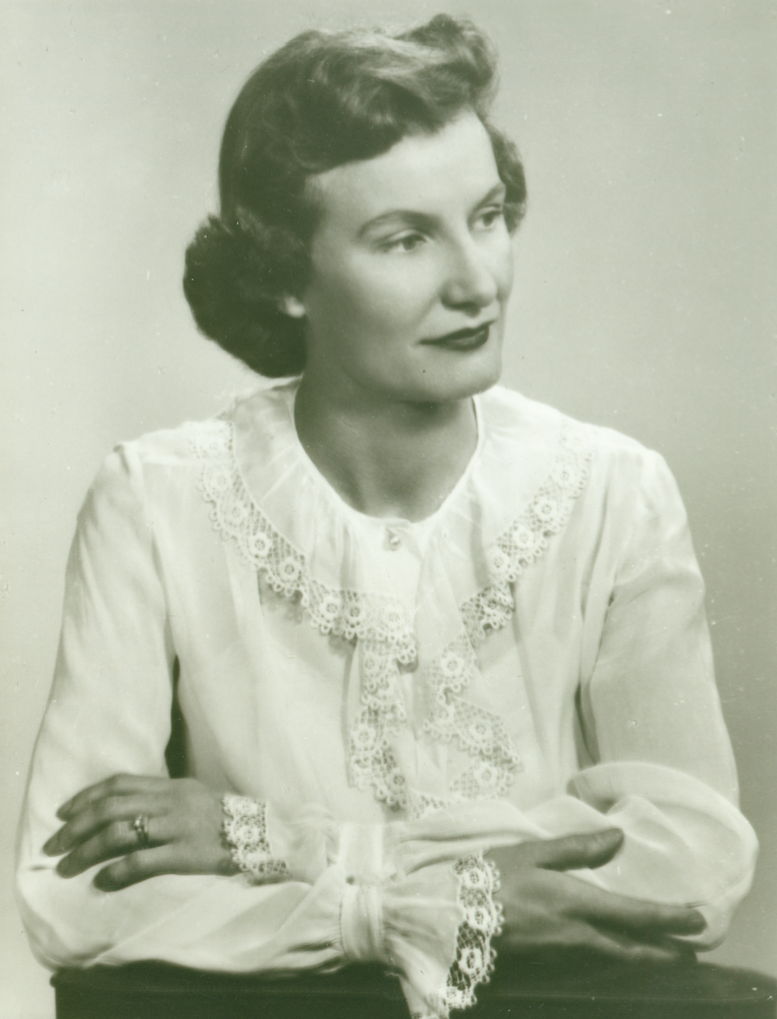In spring 1955, praise flowed like the French Broad River itself for Wilma Dykeman’s debut book, The French Broad. Combining regional and cultural history with environmental studies, the work was part of the Rivers of America series published by Rinehart & Co.
Dykeman, who was born and raised in Buncombe County, lived in Newport, Tenn., when The French Broad came out. Her familiarity with both locations gave the author “intimate knowledge” of the river and its tributaries, wrote the Asheville Citizen-Times in an April 24, 1955, book review.
The paper continued:
“With warmth, understanding and humor, Miss Dykeman unfolds the panoramic history of the river from the happy and peaceful Yesterday, before the Indian had to fight ever-widening encroachments upon his homeland, to the bustling Today of cities, big industries and stream-pollution.
“A book attempting to cover such a wide period of history, such varied ways of life, could easily have become a desperate recounting of times and names, but Miss Dykeman has described the historic sweeps of settlement, of Civil War and modern growth, by the happy expedient of bringing to life the people who lived and suffered and worked without realizing that they were making history.”
National attention soon followed. On May 29, 1955, in the Sunday edition of the Asheville Citizen-Times, local reviewer George McCoy highlighted praise Dykeman received from The New York Times, which called The French Broad, “sound, flavorsome Americana.”
McCoy went on to describe the work himself as “a fresh and fascinating treatment of the sturdy and independent people who settled in the valleys and on the hillsides of the French Broad country.”
Returning to the national conversation around the book, McCoy shared a humorous observation made in The Atlanta Journal and Constitution. For individuals unfamiliar with the river, the paper wrote, the book’s title “might give the impression that it is a racy novel about a French gal.”
That October, Dykeman became the first recipient of the inaugural Thomas Wolfe Memorial Literary Award.
By December, local bookstores ran holiday ads promoting The French Broad as an ideal Christmas gift. Blurbs from national publications lined the advertisement, including endorsements from the Chicago Tribune, Los Angeles Times and Christian Press, which proclaimed: “Here is the story, vivid and dramatic, of a little river with a big history. This fine book becomes, under the pen of its author, an American saga.”
Editor’s note: Peculiarities of spelling and punctuation are preserved from original documents.




Before you comment
The comments section is here to provide a platform for civil dialogue on the issues we face together as a local community. Xpress is committed to offering this platform for all voices, but when the tone of the discussion gets nasty or strays off topic, we believe many people choose not to participate. Xpress editors are determined to moderate comments to ensure a constructive interchange is maintained. All comments judged not to be in keeping with the spirit of civil discourse will be removed and repeat violators will be banned. See here for our terms of service. Thank you for being part of this effort to promote respectful discussion.